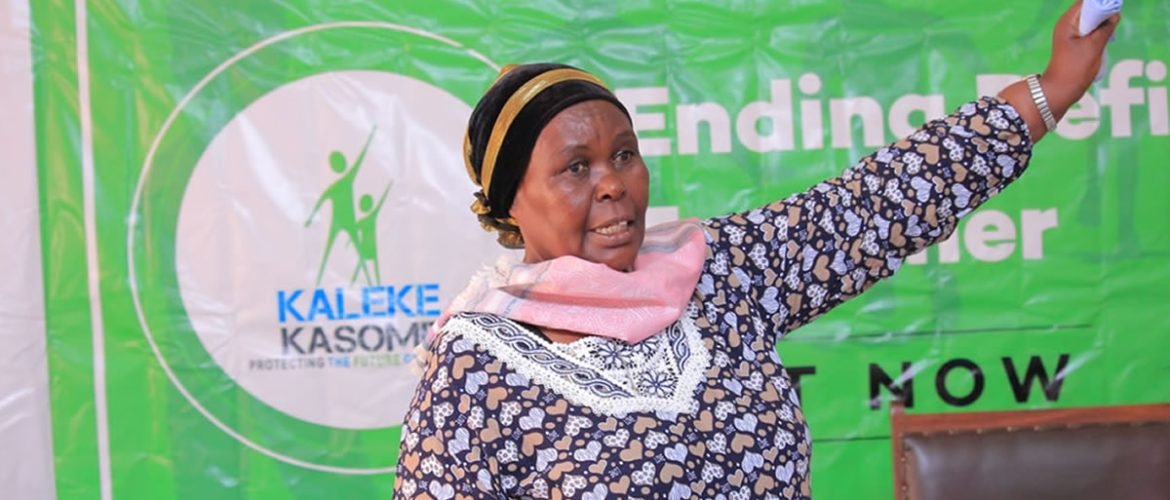Strengthening Referral Pathways To Track Sexual Abuse Cases In Mpigi District.
A large portion of children in Mpigi district that are sexually abused and therefore experience sexual violence do not seek help or get to report cases of such abuse to the local authorities. Sexual abuse against children consists of both physical and psychological abuse. Physical abuse consists mainly of acts such as rape, defilement, “bad touches”. Psychological abuse normally takes the form of using sexually inappropriate language and sexual gestures that solicit, are suggestive and therefore meant to insinuate or suggest sex.
A large portion of children in Mpigi district that are sexually abused and therefore experience sexual violence do not seek help or get to report cases of such abuse to the local authorities. Sexual abuse against children consists of both physical and psychological abuse. Physical abuse consists mainly of acts such as rape, defilement, “bad touches”. Psychological abuse normally takes the form of using sexually inappropriate language and sexual gestures that solicit, are suggestive and therefore meant to insinuate or suggest sex.
Referral Pathways refer to the processes by which a survivor (a sexually abused child) gets to access professionals and/or institutions regarding her case. Referral pathways further include the processes by which different professional sectors communicate and work together, in a safe, ethical and confidential manner, to provide the survivor with comprehensive support. Noteworthy is the fact that the system created should possess a flexible mechanism that safely links survivors to supportive and competent services. The referral pathways created can therefore include any or all of the following: Health, Psychosocial, Security and Protection, Legal/Justice, and/or Economic Reintegration support.
Referral Pathways therefore help survivors who typically have multiple and complex needs that require a comprehensive set of services to access quick and effective care to help the cope with effects of sexual abuse as one single organization cannot effectively provide all of these services and therefore coordinated, multi-sectorial response is necessary.
Many local leaders and members of communities believe that they should not be involved in the referral Pathway. However, survivors have a right to disclose an incident to anyone. Anyone the survivor tells about her experience has a responsibility to give honest and complete information about services available, to encourage her/him to seek help, and to accompany her and support her through the process whenever possible.
Providing information to survivors in a safe, ethical and confidential manner about their rights and options to report risk and access care is a responsibility of ALL members of communities especially in the provision of Psychological First Aid (PSA). PSA is described as the humane, supportive response given to a survivor. This can be done mainly through creation of a supportive environment in which a survivor’s rights are respected and in which s/he is treated with dignity and respect. This approach is also known as the “Survivor-centered approach”. Through this approach, a survivor’s recovery, ability to identify the offender(s) and also have/possess a sound capacity to make decisions about possible interventions are all heightened.
The following steps can be helpful in the event of/ occurrence of sexual abuse.
- talk to your parent or guardian immediately
- Contact the area local council Chairperson
- Rush to the nearest police station i.e. for evidence purposes
- Take the victim to hospital for further checkups
- In the event of there being evidence to prove sexual assault, ensure that the person accused is taken to court.
Through KAKAF’s interaction with local leader’s, it was established that many challenges affect the strengthening of referral pathways such as ignorance of available referral pathways, poverty limiting access to medical care or transportation to the health facility or police station, illegal settlements made between the caretakers/guardians/parents of the victims of sexual assaults and their assailants, existence of harmful cultural practices that make it a ‘taboo’ for a victim/survivor of sexual abuse to report the crime to the community elders or authorities. Worst of all these challenges is the issue of moral decay in the society as most abusers/assailants’ are person’s known personally and respected by the victim.
In Mpigi, the KAKAF community center is working hand in hand with the local authorities to help strengthen Referral pathways for survivors of sexual abuse. This is being done through a help desk and department to follow up cases of sexual abuse. The department is also working at strengthening referral pathways with the officers of the Uganda Police force and local leaders. Access to local leaders is mainly being done through outreaches that help the foundation to sensitize them on the role that they play in strengthening referral pathways to help track sexual abuse cases in Mpigi.
KAKAF greatly appreciates the team, community leaders and stake holders that made it to the recently concluded outreach at kituntu Sub County headquarters in Mpigi District a success.



